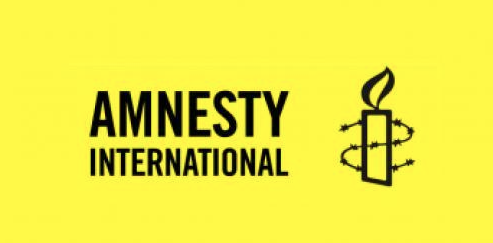Amnesty International says Nevsun ruling ‘sends clear message’ that Canadian companies must be held accountable for alleged human rights abuses abroad
In a landmark ruling, the Supreme Court of Canada has decided that a human rights lawsuit against a Vancouver-based mining company can be heard in British Columbia, and not Eritrea where the human rights abuses allegedly occurred.
The Eritrean plaintiffs say they were forced to work in a gold, copper and zinc mine largely owned by Nevsun Resources. The employees allege they suffered gross human rights abuses while working for the Canadian mining company, including forced labour and torture. Nevsun argued that the case should be heard in Eritrea, not Canada.
“This ground-breaking decision sends a clear message to Canadian corporations that they can and will be held accountable for alleged human rights abuses overseas,” said Alex Neve, Secretary General of Amnesty International Canada. “This sets a precedent that should reverberate globally as well, as the drive to ensure effective remedies for individuals and communities impacted by corporate human rights harms needs to be strengthened around the world.”
In a 5-4 decision penned by Justice Rosalie Abella, the Supreme Court of Canada ruled that “there is no longer any tenable basis for restricting the application of customary international law to relations between states.”
Further, the majority judgement observed that the appeal “involves the application of modern international human rights law, the phoenix that rose from the ashes of World War II and declared global war on human rights abuses. Its mandate was to prevent breaches of internationally accepted norms. Those norms were not meant to be theoretical aspirations or legal luxuries, but moral imperatives and legal necessities.”
In 2014, three Eritrean men filed a claim against Nevsun Resources, a Canadian mining company. The plaintiffs sought accountability for human rights violations – including allegations of torture, slavery, forced labour and crimes against humanity – during the construction of the company’s gold and copper mine in Bisha, Eritrea. According to documents filed in court, the company had prior knowledge and understanding of the likelihood that its business relationships would involve the use of conscripted labour.
Today’s historic decision is important because it clarifies that Canadian companies can be held accountable in Canada when implicated in human rights violations overseas. In the past, some court cases involving the human rights conduct of Canadian companies overseas have not been heard in Canada because companies successfully argued that the cases should be tried in the countries where the alleged abuses took place. Yet this is highly problematic where a fair trial is not guaranteed in the host country, due to a lack of judicial independence and other violations of international human rights norms.
Amnesty International, which intervened jointly with the International Commission of Jurists in the Supreme Court case, has been urging Canadian courts to be open for justice and ensure respect for the right to an effective remedy for over a decade. Bringing cases of this nature to justice is vital because impunity only fuels the belief that those responsible for corporate human rights abuses are untouchable. This decision supports Amnesty’s position that corporate actors should not be able to dodge accountability for their role in human rights violations abroad.
Amnesty International and the International Commission of Jurists very much appreciate having been represented on a pro bono basis by a legal team made up of Paul Champ of Champ & Associates, Jennifer Klinck of Juristes Power Law, and Professor Penelope Simons and Professor François Larocque with the Faculty of Law at the University of Ottawa.
For more information, please contact: Lucy Scholey, Media Relations, Amnesty International Canada (English branch), 613-744-7667, ext. 236, lscholey@amnesty.ca













